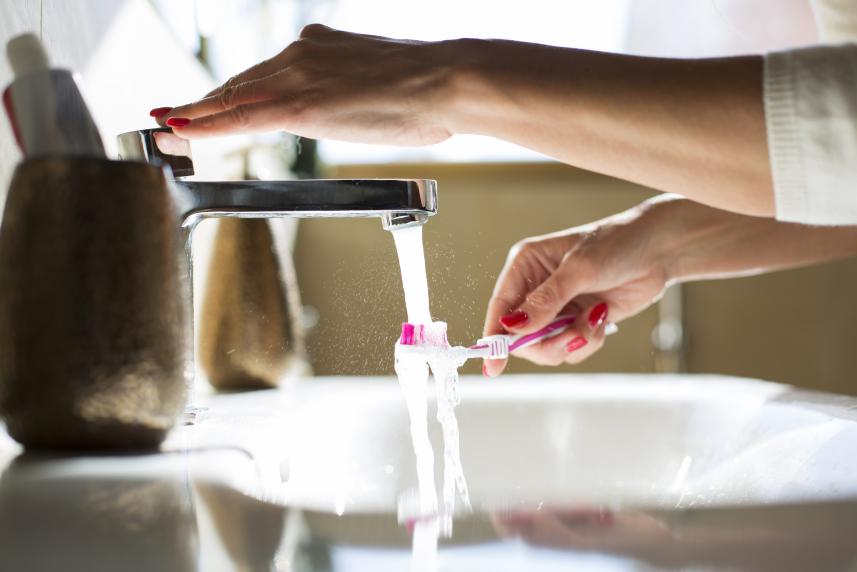Three simple dental habits that can safeguard your heart health
Your daily dental routine does more than protect your smile. It supports your heart, too.

You know regular brushing and flossing are good for your teeth and gums. But did you also know that proper oral care can keep your heart healthy, too?
Bad brushing habits have been tied to a higher risk of heart disease, according to the American Heart Association. And it’s especially important that you visit the dentist regularly.
So, make that appointment, and keep your teeth and gums healthy between visits with these tips from Cynthia Sherwood, D.D.S., legislative communications chair for the Kansas chapter of the Academy of General Dentistry (AGD).
1. Floss first
It may seem like a hassle, but it’s a necessity for a healthy mouth. “Flossing is just as important as brushing. Not flossing puts you at an increased risk of developing gum disease,” says Dr. Sherwood. Dental floss goes between your teeth, where your brush can’t reach, to remove plaque and debris, and it can also help reduce bad breath.
Floss before you brush, both in the morning and before bed, to remove any accumulated food and plaque. Make sure you floss up and down and around your teeth, to ensure that you’re getting in all the nooks and crannies.
Your doctor may recommend using mouthwash if you have issues with bad breath or need fluoride. The AGD recommends avoiding mouthwashes that contain high levels of alcohol (18 to 26 percent), which can dry out the mouth and produce a burning sensation. To get the full benefits, swish for 30 seconds, and avoid eating or drinking for 30 minutes after spitting it out.
2. Brush for two minutes, twice a day
When you brush, and for how long, matters. Twice a day, for two minutes each time, is key, says Dr. Sherwood.
If your gums are bleeding, the most likely culprit is plaque caused by inadequate brushing and flossing. “If plaque sits on teeth and under the edges of the gums for more than 24 hours, it forms toxins that cause inflammation and bleeding. So, the soreness and inflammation just get worse and worse,” says Dr. Sherwood.
“I see a lot of patients who tell me that if their gums bleed, they try not to brush them because they are afraid that it will make it worse and it will hurt,” she says. Instead, make sure you’re brushing thoroughly and for at least two minutes. If it doesn’t get better after a week, head to your dentist for professional help.
There is, however, such a thing as brushing too thoroughly. Avoid sawing back and forth and pressing too hard. Instead, make gentle circular motions across each tooth. After brushing, swish with water to remove any excess toothpaste. Choose soft bristles (harder bristles can damage gums) and replace your brush whenever it begins to show wear, or after 90 days, whichever comes first.
3. Steer clear of sugary drinks and foods
“Sports drinks, energy drinks, and soda can harm teeth,” says Dr. Sherwood. “The high acidity levels in these drinks erode tooth enamel, the glossy outer layer of the tooth. Damage caused to tooth enamel is irreversible, and without the protection of enamel, teeth become overly sensitive, prone to cavities, and more likely to decay.”
Talk to your dentist about how your food choices impact your teeth. If you do sip soft drinks, opt for a straw to avoid as much contact with your teeth as possible.
The American Dental Association also recommends eating nutritious, acidic foods like tomatoes and citrus fruits with a meal, rather than on their own. And rinse your mouth with water after your meals.


